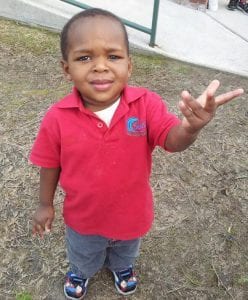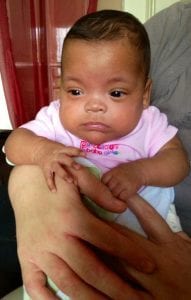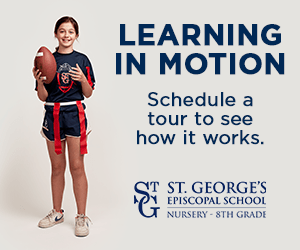
Full confession: I am not a mother. I’d like to be one eventually, but at this moment in my life, my maternal doting is entirely directed towards a scruffy dog named Roux who I tend to treat “as if she were a child.” Or so my mother says. Over the course of my career; however, I’ve gotten a rather unique perspective on mothering and its many joys and challenges. In particular, I’ve been lucky enough to work in positions that have partnered with United Cerebral Palsy, Autism Speaks, and now Easter Seals. This has allowed me a special kind of access to the families that these non-profits, who serve individuals with special needs, provide support to on a daily basis.
Through all of these experiences I have come to one conclusion: mothers of children with special needs are phenomenal people. Like, give-those-ladies-a-medal phenomenal. Of course all moms have challenges, but these ladies have unusual, unpredictable ones, and they face them with courage and love and sheer joy. It’s a wonderful thing to behold.
So when I was asked to write a guest post for NOLA Moms Blog, I tried to put myself in a new mother’s shoes. What would I want to know? Naturally, all parents want their children to be happy and healthy and as such, many worry about their children hitting certain developmental milestones. While we at Easter Seals typically work with children and adults with mental and physical disabilities, what many people don’t know is that our System Point Of Entry (SPOE) offices have a special purpose: to assess if a child is on track with their development or not and then, if needed, get their families the support services to get their kid on track. This service is available to ALL Louisiana children age three and younger.
I sat down with Jessica Rodrigue, the Director of our SPOE office here in New Orleans, to get the scoop on what to look for in your child’s development as a new parent. Because as any good mother will tell you, you can never have too much information when it comes to your kids. Below are things you should look for in your tot…

Speech
This is the biggest reason we get parents calling for an assessment. Many parents operate under the assumption that children should be talking at 1 year old. Rodrigue says she’s had parents referring 10 month olds to her because they’re not speaking yet. “Speech is hard at that young age,” she says. “Typically, most kids start talking anywhere between 12 and 18 months. They should be gesturing – pointing to things they want, etc. – by around a year. At those ages, 10 -20 words accompanied by gestures is pretty typical.” With that said, Rodrigue has seen children as old as 3 who aren’t talking yet whose doctors glossed over the issue with a “all kids develop at different rates” explanation. “It’s better to get them assessed early,” she says, “so you can start support services for them.”
Walking
Again, many parents subscribe to the walking-by-1-year rule. However, Rodrigue says that by that age, if they’re cruising, they should be fine. It they’re not trying to sit up by then, however, you should have them assessed. “We use the Battelle Development Test that evaluates kids’ development on a curve,” she says. “If your kid isn’t walking by 14 or 16 months, you should be concerned. Anything before then isn’t cause for alarm.”
Fun fact: some babies just don’t crawl. They go straight from sitting to walking. It happens more than you think, Rodrigue tells me.
Eye Contact and Communication

Babies should be starting to watch the faces of parents and those around them by 3 months. This falls under the social and emotional levels of development. Are they smiling at you? Do they look at toys when you play with them? Be mindful of if your baby makes eye contact and reacts to your facial expressions early on. These directly affect their cognitive skills and help them develop receptive and expressive actions, which later develop into them understanding commands and being able to express to you what they want or need.
Motor Skills
From birth, babies are constantly developing their fine motor skills. Most babies begin picking up small things, like raisin snacks, with a whole-palm raking motion by 6 months. By 12 months, they should be starting to use a pinch-and-hold motion to grab things. “Once you get past the 1 year mark, you should see them attempting things like trying to feed themselves or helping you dress them by taking a sock off or putting their arm through a sleeve,” says Rodrigue. “These skills usually develop around 16 to 18 months.”
The important thing to remember is you’re not alone in assessing your child’s development. Rodrigue says many parents worry they’re being overly cautious or paranoid. “If you’re worried, call us,” she says. “We have no problem coming out to see and assess a child. It is covered by the state and doesn’t cost the family anything. If it’s deemed that services are needed we draw up a support plan. If it turns out everything is fine, we are just happy to put parents’ minds at ease.”
To read the success stories of the children you see pictured in this post you can visit our blog. To access Easter Seals’ online Ages & Stages Questionnaire to screen your child’s development visit our national website. If you would like to contact Jessica Rodrigue and the New Orleans SPOE office, the telephone number is (504) 595-3408. You can also find Easter Seals Louisiana on Facebook and Twitter.
Dominique Ellis
 Dominique is the Marketing & Communications Coordinator for Easter Seals Louisiana, a community based non-profit assisting children and adults with mental and physical disabilities achieve independence. Constantly inspired by the special needs organizations she has worked with in both New York and New Orleans, she now fills her time back home in NOLA, working and exploring the city with her dog Roux. Follow her on Twitter @dominiqueellis.
Dominique is the Marketing & Communications Coordinator for Easter Seals Louisiana, a community based non-profit assisting children and adults with mental and physical disabilities achieve independence. Constantly inspired by the special needs organizations she has worked with in both New York and New Orleans, she now fills her time back home in NOLA, working and exploring the city with her dog Roux. Follow her on Twitter @dominiqueellis.

















What a great resource for families to know about – thank you so much for sharing your wisdom!
Happy you found it useful!
Great post! My son is a micropreemie and is actually friends with those twin cuties. I’m so grateful for Early Steps. The therapists are fantastic and I think it’s a great service to those who need it.